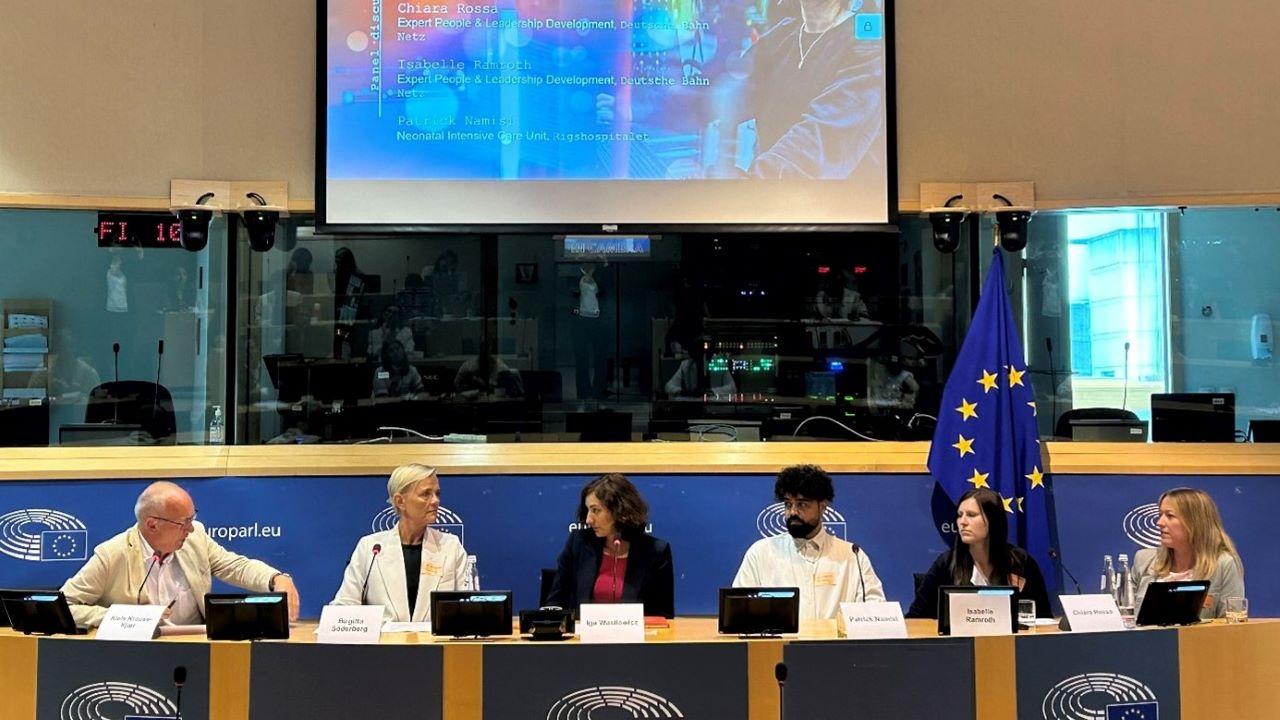
Politics and Analysis
Paving the way to gender equality – let’s talk about the root causes
8. June 2023
Article
On 7 June the Confederation of Danish Employers (DA) held an equality conference together with a number of other employers' organizations. One of the key takeaways from the equality conference was that we must widen our perspectives beyond laws and policies when addressing the root causes of gender inequality in Europe.
The obstacles to equal opportunities for both women and men are multidimensional and complex, ranging from structures in society, over gender-segregated educational choices and labour markets to harmful gender norms from a young age. We need to enable women and men to participate in the labour market on equal terms and to break down occupational stereotypes.
That was the main message at the just-held equality conference, which the Confederation of Danish Employers (DA) held together with a number of other employers' organizations
Expectations in the educational system
Labour markets in the EU remain heavily gender-segregated. More women may be employed compared to earlier, but we have yet to see substantial changes in gendered employment patterns. In Denmark, for example, the intake on 66% of education and training programmes is heavily weighted towards either men or women.
If an education programme is gender-segregated it can be an obstacle for young people to even consider applying for the programme. Such programmes also lack a diverse range of role models which can be very important for young people making their career choices.
One of the speakers at the conference was Patrick Namisi who works as a nurse at the Neonatal Intensive Care Unit at Rigshospitalet in Copenhagen. He reflected on his career choice:
- I think I would have chosen to become a nurse a lot earlier if I had had a male role model in the sector. As a young man, I struggled to see myself in the sector, even though I had a student job in the care sector, which I was good at and enjoyed. But there was something holding me back at the time. It didn’t fit my self-image as a young man, he said.
The culture at the educational institutions is also a significant factor when making career choices, Patrick Namisi explained:
- During my studies I have experienced different expectations of me and my male colleagues compared with the female students. Teachers where not expecting us to be interested in care, but rather to be interested in leadership or work in the more technical aspects in the care sector. This creates an obstacle for both men and women to pursue their true interest and to become the nurse they want to be and not the one they are expected to be.
Gender norms and equal pay
John Ekberg from The Swedish National Mediation Office shared some of the latest research on the gender pay gap. He stated that reality is very complex and explained that many factors affect women’s and men’s wages. From a European perspective, he highlighted the unequal share of paid and unpaid work as one of the drivers of unequal pay.
Indeed, the European Institute for Gender Equality’s (EIGE’s) gender equality index from 2022 shows gender inequalities in allocation of time spent doing care and domestic work in all EU-member states:
- 37% of women in the EU spend time on childcaring every day compared with 25% of men
- 78% of women spend time cooking and/or doing household chores every day compared with 32% of men.
We need to understand why women are more likely to carry out more unpaid work than men in order to make significant changes. One aspect could be the different expectations of the father and mother roles. Research already suggests that the gender divide at home is reduced when men take parental leave.
Patrick Namisi also experiences the gender divide in his work:
- Working in a Neonatal Intensive Care Unit, I see how there are different expectations of men and women when becoming parents. There are many societal structures that create barriers for men to be as involved in their children, as the mothers are, he said.
We need more information on how societal structures, gender norms and stereotypes affect gender equality. The root causes are often complex and multidimensional and we should not underestimate the potential effects of cultural and societal changes in achieving gender equality both in and outside the labour market.
This conference was held on Wednesday 7 June 2023 in the European Parliament. It was hosted by the Members of the European Parliament Marianne Vind (S&D) and Elżbieta Łukacijewska (EPP) in collaboration with the Confederation of Danish Employers (DA), the Polish Confederation Lewiatan, the Confederation of Swedish Enterprise (SN) and the Confederation of German Employers' Associations (BDA). The aim of the conference was to bring different stakeholders together to discuss how we can apply a broader view on gender equality in the labour market.